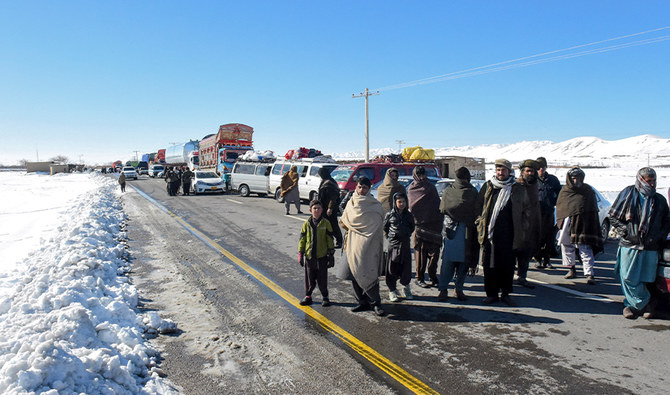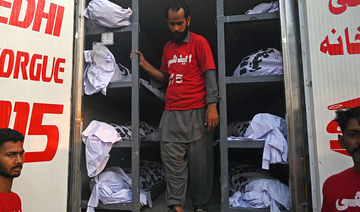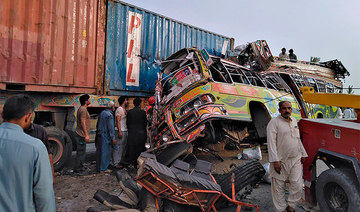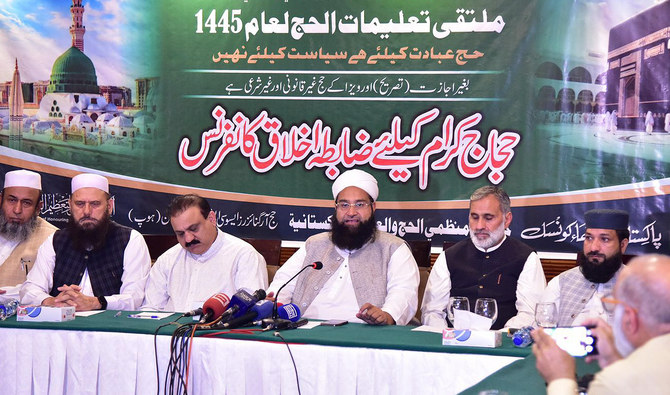ISLAMABAD: Muhammad Asif recently brought his four siblings and mother to Rawalpindi and took up a temporary job to escape the harsh weather conditions of his native town, Skardu.
“The whole economic activity in our area [Gilgit-Baltistan] comes to a halt from December to March due to heavy snowfall and freezing temperatures,” he told Arab News. “We are left with no option but to migrate to relatively warm cities like Rawalpindi to find jobs to support our families.”
Asif, 22, is currently working as a waiter at a small restaurant in Rawalpindi. He plans to return to his native city, Skardu, in April when weather in the northern areas becomes pleasant again.
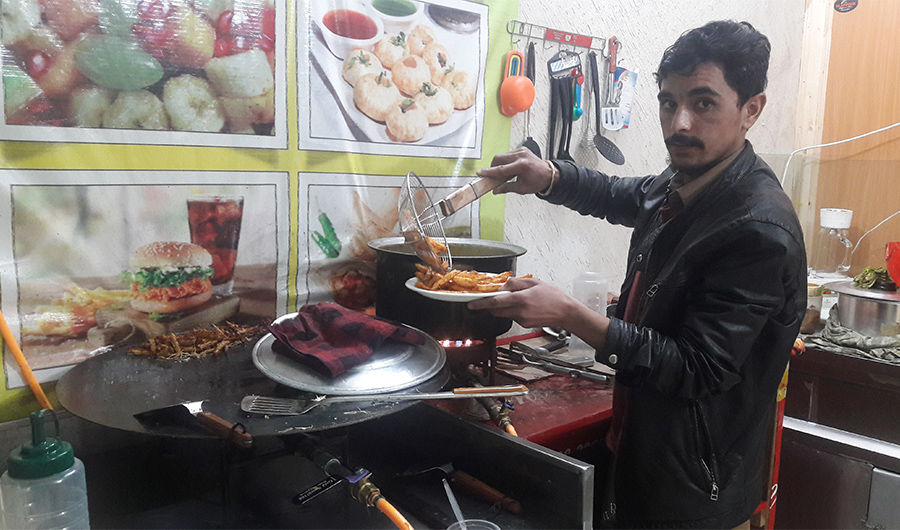
Muhammad Asif, who recently migrated from Skardu to Rawalpindi to escape the harsh weather conditions in his native town, can be seen at work at a small restaurant on January 22, 2020. (AN photo by Aamir Saeed)
“My mother is asthmatic and she finds it difficult to breathe in Skardu since the oxygen level in the area drops during the winter season,” he said. “That’s the reason why we have to live in Rawalpindi till April.”
The freezing temperature in Pakistan’s mountainous areas including, Gilgit-Baltistan and Azad Kashmir, force thousands to migrate to other cities including Islamabad, Rawalpindi and Karachi during winters. It requires them to have a lot of resources since these people live in rented houses for four to five months, transport their belongings, find new jobs, and leave their homes unattended.
Around twenty percent of people out of an estimated six million in Gilgit-Baltistan and Azad Kashmir migrate to relatively warm cities in the country to escape heavy snowfall, avalanches and landslides, according to Fida Muhammad Nashad, speaker of the Gilgit-Baltistan Legislative Assembly.
“It is very difficult to survive in the northern areas during winters,” Nashad told Arab News. “People who cannot migrate to warmer areas have to keep themselves locked inside their homes for about three months as temperature drops to as low as -21 degree Celsius.”
He said that weather in the northern areas had become extremely harsh during winter and summer seasons due to the adverse impact of climate change. “We have been in touch with the federal government to launch some mitigation and adaptation projects to protect our people from such climate,” the speaker said.
Avalanches, heavy snowfall and other weather-related incidents killed over 100 people and left many injured across Pakistan and Azad Kashmir earlier this month. Frequent avalanches and landslides occur in the country’s northern areas and Kashmir during winter, often blocking roads and leaving communities isolated.
The World Bank estimates that worsening impacts of climate change in three densely populated regions of the world – South Asia, Africa and Latin America – could see over 140 million people move within their countries’ borders by 2050, creating a looming human crisis, and threatening the development process.
“Unfortunately, migration driven by harsh weather conditions is increasing in Pakistan rapidly, and it is endangering sustainable growth and development in other cities as well,” Dr. Imran Khalid, a climate change expert at the Sustainable Development Policy Institute, told Arab News.
He said the government institutions should adopt a proactive policy to deal with adverse impacts of the climate change and subsequent disasters like floods, droughts and migration. “The erratic and harsh weather, heavy snowfall and avalanches are all manifestations of the climate change that are making lives of the people difficult,” he said.
The Global Climate Risk Index has placed Pakistan on the fifth spot on the list of countries most vulnerable to climate change in its annual report for 2020, which was released by Germanwatch in December last year.
According to the report, Pakistan has lost 9,989 lives, suffered economic losses worth $3.8 billion and witnessed 152 extreme weather events from 1999 to 2018. Based on the data, the think-tank has concluded that Pakistan’s vulnerability to climate change is increasing.
Pakistan’s emissions of greenhouse gases are less than one percent of the overall global emissions and according to its Intended Nationally Determined Contribution (INDC) submitted to the United Nations Framework Convention on Climate Change, the South Asian nation has promised to bring them 20 percent below the usual level by 2030.
“Our commitment to cut the greenhouse gas emissions is conditional to availability of financial flows of about $40 billion,” Malik Amin Aslam, adviser to Prime Minister Imran Khan on Climate Change, told Arab News.
He said that his ministry was working with provincial governments, including Azad Kashmir and Gilgit-Baltistan, to effectively deal with global warming. “People who migrate to safer places to evade harsh weather conditions are actually climate refugees, and we need to deal with this phenomenon as quickly as possible,” he added.



